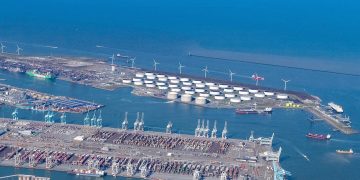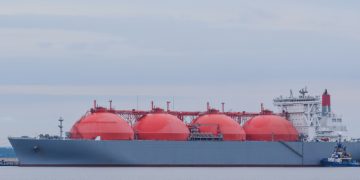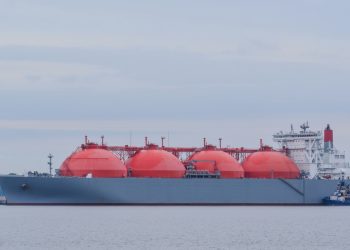Bridge fuels like LNG or bio-LNG are a smart way to begin the transition and extend vessel lifetimes while the production of zero-emission alternative fuels is still being scaled up.
What is the difference between fossil LNG and bio-LNG?
Fossil LNG is natural gas that has been extracted from underground reserves onshore (including from shale and other sedimentary rock formations) and offshore. The production process includes separation from oil; removal of water, sulphur and carbon dioxide; and separation of natural gas liquids. The resulting material is then cooled to form LNG – a clear, odourless liquid. LNG is typically 85–95% methane, and it contains small amounts of ethane, propane and other hydrocarbons as well as trace amounts of nitrogen and carbon dioxide.
Bio-LNG generates lower greenhouse gas emissions than fossil LNG. Bio-LNG is derived from the liquefaction of biomethane, which can be produced from the degradation of biomass and waste through a chemical or thermal process. Because bio-LNG can be made from feedstock such as agricultural waste, food waste, sewage sludge and manure it is considered a renewable fuel that can further reduce the carbon footprint of ships using LNG fuel systems.
Four reasons why bio-LNG is an even more attractive bridge fuel
According to Wärtsilä, there are four reasons why bio-LNG is a good choice for vessels in the short and medium term:
- Bio-LNG dramatically lowers carbon emissions
Bio-LNG is nearly carbon-neutral because it recycles carbon that is already part of the natural carbon cycle, unlike fossil fuels which release ancient carbon into the atmosphere. It can reduce emissions by up to 80% compared with traditional marine fuels like HFO. - Bio-LNG contains fewer impurities and less sulphur
Because it is made from organic waste that has already been consumed or processed in some way, bio-LNG typically contains fewer impurities than fossil LNG. This reduces the harmful by-products when the fuel is combusted, such as particulate matter. Due to the production process, bio-LNG also has a lower sulphur content compared to fossil fuels. - Bio-LNG is compatible with existing LNG infrastructure
Ships with LNG-capable engines can use bio-LNG as fuel and refuel using LNG bunkering infrastructure. This compatibility allows shipping companies to switch from conventional LNG to bio-LNG without any retrofits, saving both time and money. - Bio-LNG is a future-proof solution
If your vessel uses bio-LNG as fuel, it will be relatively straightforward to convert your engines to run on carbon-free fuels like green ammonia or green hydrogen once these are available at scale.



























































